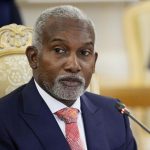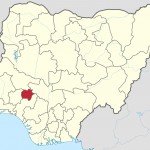Feature/OPED
MultiChoice’s Subscriber Base Dip Reflects Difficult Consumer Environment
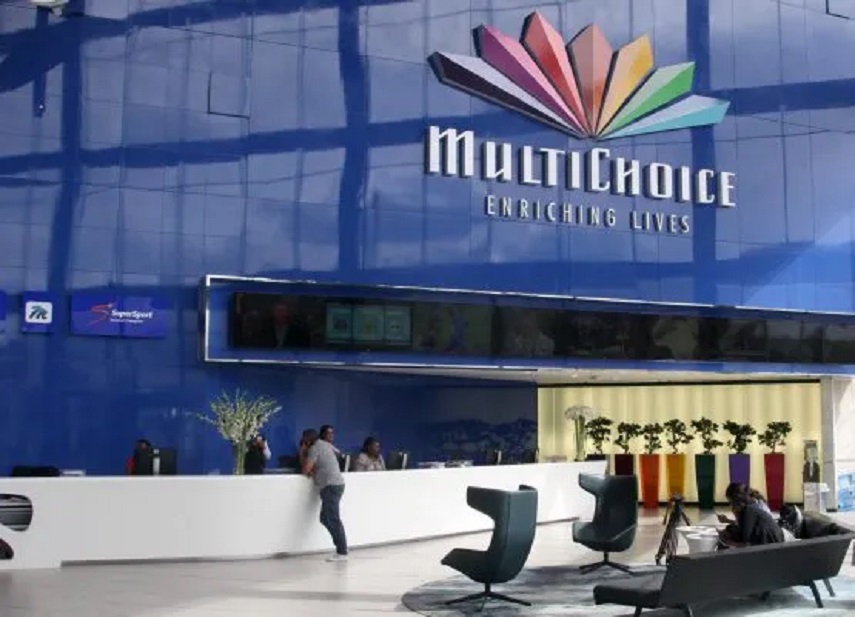
A business news item with some prominence last week was the interim financial results of the pay television company, MultiChoice Group, with Nigeria being one of its most significant markets. The most arresting item in the results is the announcement of the loss of 243,000 subscribers on MultiChoice’s DStv and GOtv services within the six months (April to September 2024) covered by the result released last week.
Also of public interest, albeit to a lesser extent domestically, is MultiChoice’s loss of 298,000 subscribers in its Zambian market, which was attributed to persistent power outages induced by drought. Although there were declines in the company’s other markets in the Rest of Africa (RoA) and South Africa, they were relatively low at 25% and 5%, respectively.
Also reflected in the results was the $21 million trapped in the distressed Heritage Bank, which has had its license revoked by the Central Bank of Nigeria. This splurge of negative information understandably sparked a mix of reactions, notably wildly unreasoned but with a smattering of clear-headed ones. The previous analysis, which focused only on subscriber losses and the $21 million, ignored other aspects of the results and reached an apocalyptic conclusion.
That strain of analysis blamed the subscriber base decline on the tariffs charged by the company. It was indifferent to the local economic conditions, which have significantly diminished purchasing power not only among MultiChoice subscribers but also for users of other services and goods.
It could not have been otherwise, given that the country’s inflation rate has been consistently above 30% for over a year, with the latest figure of 33.88%. The inflationary pressures have been aggravated by the drastic and continuous dip in the value of the naira, which caused huge foreign exchange losses for businesses, including MultiChoice. The pay television company’s losses from a dollar-denominated intergroup loan stood at 2.1 billion Rands within the period covered by the results.
It is quite clear that during tough economic times, consumers reduce spending on non-essential items, the category into which pay television services are included. This is supported by the recent CBN Household Expectations Survey, which stated that at this time, Nigerians focus on food, household necessities, education, transportation, electricity, and medical care.
“The Buying Condition Index for high-ticket items like consumer durables, motor vehicles, and real estate suggests that most respondents believe the current month is unfavourable for purchasing these items. Additionally, consumers do not anticipate the next three to six months will be ideal for acquiring such products,” the report noted.
There is ample evidence that businesses are bleeding on account of the rough economic weather. Guinness Nigeria Plc reported a net loss of N12.2 billion for Q1 2025 (ending September 30, 2024). This represents a dramatic 568% decline from the N2.6 billion net profit recorded during the same period the previous year. The company cited declining sales volumes, a reduced gross profit margin, and foreign exchange revaluation losses amounting to N8.4 billion as the primary causes.
Nestlé Nigeria Plc reported a significant pre-tax loss of N255.4 billion for the first nine months of 2024. This represents a 381% increase in losses compared to the N56.65 billion loss recorded during the same period in 2023. Meanwhile, Airtel Group generated revenue of $2.37 billion for the half-year ending September 30, 2024, marking a 10% decline from $2.62 billion in the same period in 2023. The company’s operating profit fell by 20%, and it faced a $151 million loss attributed to the devaluation of the naira. These figures highlight the decline in consumer spending on calls and data services.
Some analysts, who seemingly paid inadequate attention to the results and/or heard voices in their heads, attributed the outcomes recorded by MultiChoice to the increasing consumer adoption of streaming services like Netflix and Prime and MultiChoice’s failure to diversify.
Neither, going by the results, has any factual basis. While no debate streaming services are rising in popularity, Showmax, MultiChoice’s subscription video-on-demand (SVOD) service platform is enjoying popularity, reporting 50% year-on-year growth and a 30% increase in paying subscribers. This is attributed to its transition to the Peacock technology stack, which has allowed it to establish partnerships with major distributors like Kenya’s M-PESA and South Africa’s Capitec to enhance adoption. The tariffs of the streaming services have similarly been affected by local economic conditions. Netflix, for example, has hiked the tariff of its premium package to N7,000 from N4,000 monthly.
The results, contrary to the claim that MultiChoice has focused solely on traditional pay television, show forethought and bold diversification footprints.
“We are proactive in our focus on right-sizing the business for the current economic realities and industry changes. We have successfully been implementing our strategy over the past few years, achieving key milestones such as our investment in KingMakers [MultiChoice’s gaming division],” Calvo Mawela, CEO of MultiChoice Group, stated.
MultiChoice is expanding into the insurance and financial services sectors through a partnership with Sanlam. The partnership is expected to spawn an accounting gain of between $144.4 million and $182.9 million. Moment, the company’s fintech venture, is also experiencing significant growth, as it currently processes nearly 30% of MultiChoice’s total payments, achieving payment volumes of $242 million across 40 African countries since it was launched.
In the gaming industry, BetKing Nigeria has risen to the second position in the online betting sector. Though the industry experienced a 48% revenue decrease, Betking’s overall revenue rose by 10%. Irdeto, MultiChoice’s global technology division, has shown the capability to make significant contributions through the expansion of It offers digital security services to address the increasing demands of online and streaming platforms.
The alarming predictions made by certain analysts and doomsayers fail to recognize that the economic conditions in Nigeria, particularly the soaring inflation, have forced consumers to tighten their belts. As a result, consumer behaviour has shifted significantly. Days of wine and roses are no longer around. For now, at least.
Feature/OPED
Donald Trump: Umeagbalasi and the Powers of a Screwdriver Salesman
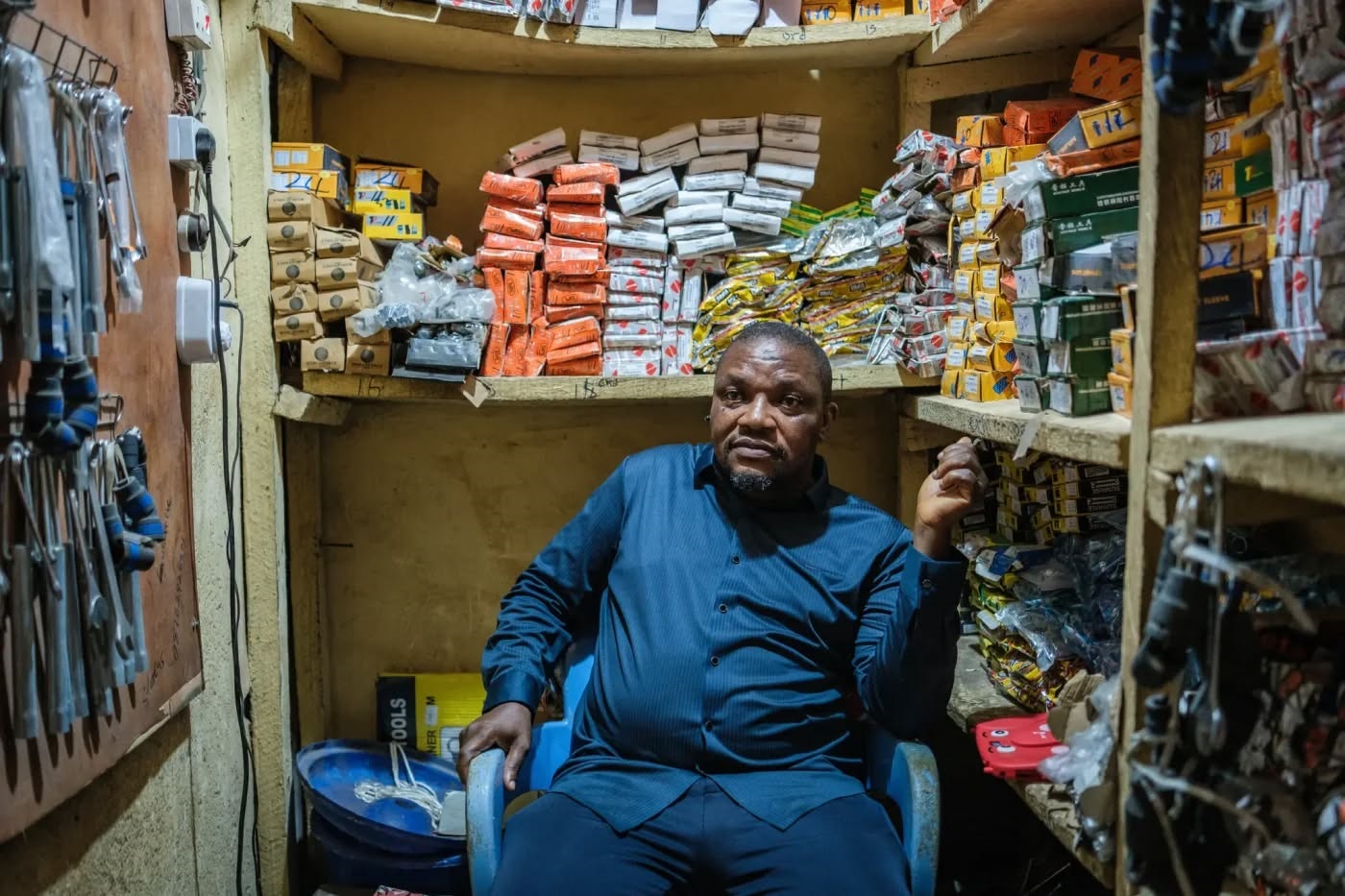
By Jude Chijioke Ndukwe
It is never difficult to see the hand of Esau in the report by The New York Times under the headline, “The Screwdriver Salesman Behind Trump’s Airstrikes in Nigeria” purportedly filed in by one Ruth Maclean.
The mocking description of Mr Emeka Umeagbalasi as a “short man” and the repeated mention of “Onitsha”, a leading commercial town in southeast Nigeria, a region with arguably the highest population and concentration of Christians in the country, in the report send all the signal needed to conclude that the report was not about facts, nor about love for Nigeria, but all about labelling a man and the ethnic group he belongs just to keep promoting a dangerous narrative mischievously and maliciously skewed against the Igbo ethnic stock of Nigeria.
It is also suspect that the same report has been generously and gleefully shared by some local media outlets despite its many flaws and glaring disinformation. These outlets that hardly share reports on Nigeria by foreign media houses have suddenly woken up to share this particular one with so much enthusiasm. “The agenda,” like we say in local parlance, “is truly agendaing.”
The same set of people who accuse Donald Trump of interfering in the internal affairs of Nigeria by deploying airstrikes against terrorists in the country have suddenly embraced The New York Times’ deliberate attempt at grand falsehood against Nigeria just because it suits their aim to pitch the rest of the country against the Igbo.
Such hypocrisy!
For clarity, incidents that led Nigeria being designated a Country of Particular Concern and subsequent follow up with airstrikes by the US started with the lackadaisical attitude government officials approached its fight against terrorism, often refusing to prosecute terrorists arrested but kept granting them pardon and entering into dubious peace deals with them to the angst and frustration of Nigerians.
These actions left victims of terrorism traumatised without any hope of justice and healing. They felt helpless and betrayed by their own government as they watched in despondency and indignation how, day after day, those who mindlessly killed their people, raped their women, hacked their children, including unborn babies, to death right before them, sacked them from their ancestral lands, desecrated and burnt their places of worship, were being handsomely rewarded by government officials at different levels instead of prosecuting them.
They watched in hopelessness, how terrorism kingpins turned billionaires from government “peace deals” while victims wallowed in penury in IDP camps where mass graves serve as a reminder of mass murders and an enduring grave injustice. Worse still is the indecent displays of money from such “peace deals” in the social media by the terrorists, thereby rubbing salt to the injury of their victims.
Left with no option, those directly in the line of fire decided to take their destinies in their own hands. They bypassed a lame and toothless government that seemed more interested in photo ops with terrorists than dealing decisively with them. They took the matter to the US Congress for help before they would be finally exterminated.
Among the first was the Catholic Bishop of Makurdi, Most Rev. Wilfred Chikpa Anagbe, who as far back as July 18, 2023, took his advocacy against “Christian genocide” in Nigeria to the US House Committee on Foreign Affairs, saying among other things that, “The inaction and silence about our plight by both the [Nigerian] government and powerful stakeholders all over the world prompts me to often conclude that there is a conspiracy of silence and a strong desire to just watch the Islamists get away with genocide in Benue State and other parts of Nigeria.”
On February 14, 2024, The US House Foreign Affairs Subcommittee on Africa held a hearing titled “The Future of Freedom in Nigeria”. Among those whose statements and testimony featured in the hearing were Bishop Wilfred Anagbe, Ebenezer Obadare, Oge Onubogu, and Kola Alapinni. From these names, one can easily see that the fight against terrorism and the campaign against “Christian genocide” in Nigeria in the international community transcend ethnicity.
A week before that, the U.S. Congress Members had already “voted to move forward with H. Res. 82, a House resolution calling for greater U.S. action in response to the religious freedom crisis in Nigeria. The House resolution…calls on the U.S. Secretary of State to designate Nigeria as a Country of Particular Concern (CPC) on their list of worst religious freedom offenders for ‘engaging in and tolerating systematic, ongoing, and egregious violations of religious freedom,’” while also highlighting religious prisoners of conscience and the egregious blasphemy laws in Nigeria.
This was in February 2024, long before Trump became President, long before the Tales by Moonlight story of “screwdrivers and airstrikes” peddled today by shameless merchants of conflicts whose “god is their belly”.
In March 2025, Bishop Anagbe continued his advocacy for the defence of his flock and their rescue from marauding terrorists to the US House Committee on Foreign Affairs (Africa Subcommittee) where he once again gave a gory detail of acts of terrorism unleashed on his people without help from government.
Following all these was the intervention of the fearless Rev Ezekiel Dachomo of Plateau State who joined in calling for an end to the killing of Christians through advocacy to the international community. He used his social media pages to highlight cases of mass murders and mass graves of his flock and other Christians killed on the Plateau, while openly calling for US intervention in the country.
We cannot forget Frank Utoo’s poignant and ceaseless advocacy and factual narratives about the killing of Christians in Nigeria, saying on the rooftops what many speak in hushed tones. He is from Yelwata, one of the worst-hit places in Benue State. And so many local and international advocates who have been calling for the intervention of the US in Nigeria’s sorry situation.
If that PR stunt by The New York Times was meant to cover up the ugly security situation in Nigeria and blame the US airstrike on Umeagbalasi, and by extension, his Igbo ethnic stock, then the mission failed abysmally. It rather presented the Nigerian government as purveyors of deceit and merchants of mischief because the same Nigerian government had earlier confirmed to the world that it (and not Umeagbalasi) provided the intelligence upon which the US acted and struck Sokoto with so much fury that sent terrorists scampering to hell like they have never done before. The Nigerian government also confirmed that the airstrike was a joint operation with the US.
The New York Times PR stunt backfired big time and those associated with it are now panting in frustration like dogs that just escaped the jaws of hyenas by the whiskers.
Let me end this piece by making it clear that anyone who gets riled that terrorists are being eliminated in Nigeria, whether by the US or by our local gallant troops, is also a terrorist or a terrorism enabler. Such people should be treated as criminal conspirators in the fight against terrorism.
Meanwhile, Mr Emeka Umeagbalasi, the noble screwdriver salesman from the East, the “short man” who towered above the “Giant of Africa” to reach Trump, the man in Onitsha who moved the hands of Trump in Washington, should celebrate his greater rise to global stardom and the unintended decoration of honours inadvertently bestowed upon him by those who sought to lead him to the guillotine.
Terrorists, their enablers and spin doctors, should learn a very important lesson from Umeagbalasi, that no matter your height and profession, “godliness with contentment is great gain.”
Jude Chijioke Ndukwe sent this piece from Abuja
Feature/OPED
How Policy Flip-Flops Are Making Nigerians Poorer
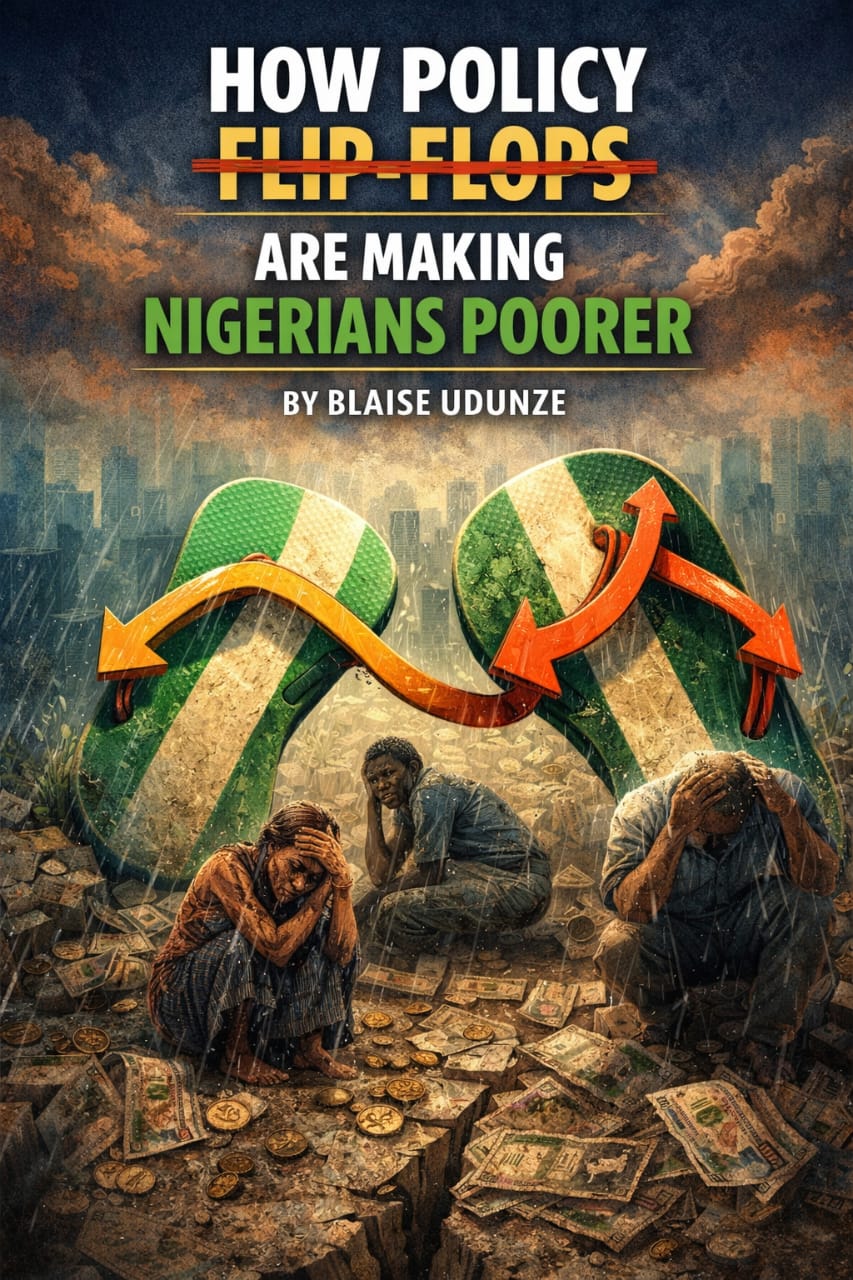
By Blaise Udunze
Nigeria’s deepening poverty crisis is no longer speculative; it is now statistically inevitable. Although the latest Consumer Price Index figures released by the National Bureau of Statistics (NBS) suggest that headline inflation is cooling and growth indicators show tentative improvement, regrettably, more Nigerians are slipping below the poverty line. Reviewing the recent projections from PwC’s Nigeria Economic Outlook 2026, it is alarming, which reveals that no fewer than two million additional Nigerians are expected to fall into poverty next year. This is expected to push the total number of poor people to about 141 million, roughly 62 percent of the population and the highest level ever recorded in the country’s history.
This grim outlook persists despite eight consecutive months of easing inflation and modest economic recovery, and as one can perceive, the contradiction is telling. The fact remains that macroeconomic signals are improving on paper, yet lived reality continues to deteriorate. It is glaring that the widening gap between policy metrics and human outcomes exposes a deeper truth in the sense that Nigeria’s poverty crisis is not simply the product of external shocks or temporary adjustment pains. It is the cumulative result of fragile policymaking, inconsistent reforms, weak institutional coordination, and a failure to sequence economic changes with adequate social protection. With these, it becomes clearer that poverty in Nigeria is no longer an unintended side effect of reform; it is increasingly its most visible outcome as identified today.
It would be recalled that the current administration in 2023, when it assumed office, promised a bold economic reset. At this point, the nation witnessed the fuel subsidy removal, exchange-rate liberalisation, and tighter fiscal discipline being introduced swiftly and applauded internationally for their courage and long-term logic. Notably, these reforms unleashed an economic storm whose aftershocks continue to batter households and currently resulting to the cost of a bag of rice that sold for about N35,000 two years ago now costs between N65,000 and N80,000, while a crate of eggs has risen from N1,200 to over N6,000 and basic staples like garri, tomatoes, and pepper have drifted beyond the reach of ordinary Nigerians. For millions, the economy did not reset; it snapped.
Inflation, often described by economists as a “silent tax,” has punished productivity, mocked thrift, and rewarded speculation.
Reports from the NBS’s December 2025 disclosed that headline inflation eased to 15.15 percent and according to it, this is due to a rebasing of the Consumer Price Index, down sharply from 34.8 percent a year earlier, this statistical moderation has brought little relief to households. Food inflation, at 10.84 percent year-on-year, and a marginal month-on-month decline may look reassuring on spreadsheets, but for families spending 70 to 80 percent of their income on food, such figures feel detached from reality. These figures are not only implausible but also insulting to those whose lives have been torn apart by the skyrocketing prices. With the realities facing the larger populace, Nigeria must be using another mathematics.
Nigeria may have changed its base year, but it has not changed the harsh arithmetic of survival.
PwC’s data underscores this disconnect, as nominal household spending rose by nearly 20 percent in 2025, real household spending contracted by 2.5 percent, reflecting the erosive impact of rising food, transport, and energy costs. The painful part of it, is that Nigerians are spending more money to consume less, and this is to say that growth, hovering around 4 percent, is not strong enough to absorb shocks or lift households meaningfully. As analysts note, Nigeria would require sustained growth of 7 to 9 percent to make a significant dent in poverty. That is to say that anything less merely slows the descent.
The structural weakness of the economy is compounded by policy inconsistency. Nigeria’s economic landscape is littered with abrupt shifts, subsidy removals without buffers, currency reforms without stabilisation mechanisms and trade policies that oscillate between restriction and openness. For households and small businesses, which employ most Nigerians, this unpredictability makes planning impossible. The economy has constantly being faced with price volatility, income shocks, and lost jobs because these are the ripple effects of every policy reversal. Uncertainty itself has become a poverty multiplier.
Nowhere is this fragility more evident than in food systems and rural livelihoods, and this has been where insecurity has merged with policy failure to create a new poverty spiral. Across farmlands in the North and Middle Belt, crops rot unharvested as banditry and insurgency force farmers off their land. Nigeria’s largely agrarian economy has been crippled by violence that disrupts planting cycles, destroys infrastructure, and displaces communities. The result is both income poverty for farmers denied access to their livelihoods and food inflation that erodes purchasing power nationwide.
For record purposes, earlier last year, the NBS Multidimensional Poverty Index showed that 63 percent of Nigerians, about 133 million people, are multidimensionally poor, with poverty heavily concentrated in insecure regions. Findings showed that about 86 million of the poor live in the North, and this is where insecurity is most severe. This record showed that rural poverty stands at 72 percent,c compared to 42 percent in urban areas, and while the states most affected by banditry and insurgency record poverty rates as high as 91 percent. Insecurity is no longer just a security problem; it is one of Nigeria’s most powerful poverty drivers.
The economic cost of insecurity in Nigeria today is staggering. This is because the conservative estimates suggest Nigeria loses about $15 billion annually, which is roughly equivalent to N20 trillion, due to insecurity-induced disruptions across agriculture, trade, manufacturing, and transportation. At the same time, security spending now consumes up to a quarter of the federal budget. In just three years, over N4 trillion has been spent on security, which crowded out investment in health, education, power, and infrastructure. Every naira spent managing perpetual violence is a naira not invested in preventing poverty, even as poverty deepens, the state’s fiscal response reveals a troubling misalignment of priorities. The 2026 federal budget, estimated at N58.47 trillion, ironically allocates just N206.5 billion to projects directly tagged as poverty alleviation and this only amounts to about 0.35 percent of total spending and less than one percent of the capital budget. In a country where over 60 percent of citizens live below the poverty line, this allocation borders on policy negligence.
Worse still, over 96 percent of this already meagre poverty envelope sits under the Service Wide Vote through the National Poverty Reduction with Growth Strategy, largely as recurrent provisions. All ministries, departments, and agencies combined account for barely N6.5 billion in poverty-related projects. This fragmentation reflects a deeper institutional failure, that is to say, poverty reduction exists more as a line item than as a coherent national mission.
Where MDA-level interventions exist, they are largely palliative and scattered, grain distribution in select communities, tricycles and motorcycles for empowerment, and small scale skills acquisition for women and youths. The largest such project, a N2.87 billion tricycle and motorcycle scheme under a federal cooperative college, accounts for nearly half of all MDA-based poverty spending. The fact remains that the various interventions may offer temporary relief, and they do little to address structural drivers of poverty such as job creation, productivity, market access and human capital development.
Even the Ministry of Humanitarian Affairs and Poverty Alleviation illustrates the problem just as its budget jumped sharply in 2026, much of the increase went into administrative and capital items, office furniture, equipment, international travel, retreats, and systems automation rather than direct poverty-fighting programmes. This reflects a familiar Nigerian paradox: institutions grow, but impact shrinks.
International partners have been blunt in their assessments. The World Bank estimates that Nigeria spends just 0.14 percent of GDP on social protection, which is far below the global and regional averages. Only 44 percent of safety-net benefits actually reach the poor, rendering the system inefficient and largely ineffective. PwC similarly warns that without targeted job creation, productivity-focused reforms, and effective social protection, poverty will continue to rise, undermining domestic consumption and straining public finances further.
Fiscal fragility compounds the crisis. The N58.18 trillion 2026 budget carries a deficit of N23.85 trillion, with debt servicing projected at N15.52 trillion, nearly half of expected revenue. The public debt has ballooned to over N152 trillion. The contradiction here is that Nigeria is borrowing not to expand productive capacity but to keep the machinery of government running. The truth is not far-fetched because, as debt crowds out development spending, households are forced to pay privately for public goods, education, healthcare, water, deepening inequality and entrenching poverty across generations.
To be clear, not all signals are negative. This is because opportunities exist if reforms are sustained and properly sequenced. Regional trade under the African Continental Free Trade Area could diversify exports and create jobs. But reform momentum without inclusion and institutional capacity risks becoming another missed opportunity.
This is the central tragedy of Nigeria’s moment. The country is attempting necessary reforms in an environment of weak buffers, fragile institutions, and low trust. Poverty is therefore not accidental. It is the predictable outcome of inconsistency, reforms without protection, stabilisation without security, and budgets without people.
Nigeria faces an undeniable choice. It can continue down a path where fragile policies deepen deprivation and erode trust, or it can build a disciplined, coordinated framework that aligns reforms with social protection, security, and inclusive growth. Poverty is not destiny. But escaping it requires more than courage in reform announcements; it demands consistency, compassion, and the political will to place human welfare at the centre of economic strategy.
Blaise, a journalist and PR professional, writes from Lagos and can be reached via: [email protected]
Feature/OPED
Political Uncertainty: Can the ADC Afford a Wolf Politician?

By Abu Mahmud
The recent realignment within the African Democratic Congress (ADC) is a direct response to its founding promise of transparency, accountability, and people-centered politics, free from money politics, godfatherism, and elite domination. The party seeks to harness a powerful opposition coalition while safeguarding its founding ideals from elite capture. Success will depend on how rigorously the ADC enforces its transparency and accountability mechanisms as the 2027 race intensifies.
As the 2027 elections approach, that promise is being put to the test. The ADC’s realignment is a high-stakes balancing act. The party must decide whether to open its doors to opportunistic politicians whose primary currency is personal ambition. Such “wolves” may bring short-term numbers, but they threaten the party’s credibility, cohesion, and long-term legacy. The ADC’s true strength lies in shared values, not in the whims of any single individual.
If the ADC admits politicians driven more by personal ambition than by shared ideals, it risks undermining its very foundation. As electioneering draws nearer, the party stands at a crossroads: either remain faithful to its principles or sacrifice them for short-term political advantage. Its credibility, cohesion, and long-term relevance depend on choosing the former.
As Nigeria moves toward the 2027 general elections, the country needs leaders of integrity—visionary, unifying, and committed to national development above sectional or personal interests. Such leaders must be accountable, open to competent new talent, and committed to institution-building, job creation, poverty reduction, and national cohesion, rather than divisive, self-serving politics.
At this critical moment, Nigerians cannot afford leadership captured by individuals who exploit poverty and emotion through populist rhetoric while pursuing narrow ambitions. Citizens must distinguish between politicians who seek power and wealth for themselves and those who serve with integrity, transparency, and a genuine commitment to community development.
A political party is bigger than any individual. It is built on shared values and collective purpose, not personal ownership. When individuals attempt to dominate a party, democracy weakens and godfatherism thrives.
Even before the election season, there is a real possibility that the ruling establishment could attempt to weaken opposition forces through proxy infiltration, sowing discord within emerging coalitions.
This concern is heightened as the PDP faces what may be its weakest moment since inception.
Atiku Abubakar has emerged as a central figure in a new opposition coalition that has adopted the ADC as its platform for 2027. The coalition includes figures such as former Senate President David Mark (interim national chairman), former Osun State Governor Rauf Aregbesola (interim secretary), Nasir El-Rufai, Rotimi Amaechi, and others. They have held consultations on party structure and strategy, advocating transparent primaries and urging members—including Peter Obi—to fully transition into the ADC. Atiku’s exit from the PDP and registration with the ADC signal a coordinated effort to challenge the APC government.
This context raises a critical question: can the ADC afford to admit politicians whose entry is conditioned on personal guarantees?
One recurring feature of some Kano-based politicians is the tendency to conflate local dominance with national relevance. Through emotionally charged rhetoric, such figures mobilize loyal supporters while mistaking regional popularity for nationwide appeal. More troubling is the practice of setting conditions even before joining a party.
Rabiu Musa Kwankwaso, has openly stated that he would only defect to another party if offered the presidential or vice-presidential ticket for 2027. He argued that his decades-long political career entitles him to such consideration, insisting that his supporters would accept nothing less. Yet this posture contrasts sharply with the conduct of other coalition members who have subordinated personal ambition to collective negotiation. To demand special concessions while others make sacrifices raises serious questions about motive, sensitivity, and commitment to a shared cause.
This article is not rooted in personal animosity or partisan loyalty. Rather, it examines a political style defined by populism, personality-driven movements, and frequent party migration motivated by immediate ambition rather than ideology. Kwankwaso commands a loyal base in Kano, where he is celebrated as a champion of the masses.
Beyond that stronghold, however, his career is marked by serial defections—from PDP to APC to NNPP—each aligned with personal calculations rather than consistent principles. Supporters describe this as pragmatism; critics call it political nomadism.
Recent developments in Kano have punctured the myth of Kwankwaso’s invincibility. Political ruptures within the state have exposed a reality long obscured by propaganda: his influence depends heavily on access to state power.
Without control of institutional machinery, his dominance diminishes. Electoral outcomes reinforce this limitation. In the last presidential election, Atiku Abubakar secured over seven million votes, Peter Obi over six million, while Kwankwaso garnered just 1.14 million—nearly all from Kano.
Governor Abba Yusuf’s anticipated defection to the APC further signals a shift in Kano’s political landscape. While the Kwankwasiyya movement remains relevant, its grip on state power is weakening. This moment calls for recalibration, not confrontation. Politics is not a do-or-die affair, and clinging to power at all costs risks eroding both dignity and legacy.
Reports of behind-the-scenes meetings involving Kwankwaso and former President Olusegun Obasanjo, along with speculation that he could be used to destabilize opposition parties, only deepen concerns about his role in any coalition. As his influence wanes, he increasingly portrays himself as a victim of betrayal, rallying supporters with narratives that elevate personal loyalty above political evolution.
In a political maneuver aimed at self-preservation, reports claimed that the former NNPP presidential candidate sought the intervention of Chief Bisi Akande to arrange a direct meeting with President Bola Ahmed Tinubu to negotiate his defection. Akande reportedly declined, stressing that he could not bypass established party structures, and instead referred Kwankwaso to the party’s official high-level negotiation committee.
The NNPP has also stated that, according to its constitution, the Kano State governor is the party leader, being its only sitting governor. Kwankwaso, they noted, was merely the party’s 2023 presidential candidate—an arrangement that ended after the election when the Memorandum of Association between the party and the Kwankwasiyya Movement expired.
Despite his anxiety about his political future, Kwankwaso has been unable to explain to the youths—whose blind loyalty he still relies on—why many long-standing allies dating back to 1999 have walked away. Absent from his narrative is any reckoning with his habit of discarding those who helped build his career: Senator Hamisu Musa, Musa Gwadabe, Abubakar Rimi, among others. Political independence is not betrayal; it is a legitimate pursuit.
When Abdullahi Ganduje parted ways with Kwankwaso, he endured ridicule and abuse. In my view, Kwankwaso and his supporters should at least appreciate Abba Gida-Gida’s restraint in not publicly recounting the unpleasant experiences surrounding his emergence as governor under the NNPP. While the Kwankwaso–Abba conflict is fundamentally political—a struggle for solutions and self-determination—there remains a clear distinction between betrayal, the pursuit of solutions, and the quest for independence from total submission. Madugo’s recent speeches, laden with symbolism and coded language aimed at Governor Abba Yusuf, reflect nothing more than a troubling lack of restraint.
For Atiku, other heavyweight politicians, and the ADC, the lesson is clear: no serious political party should mortgage its future on conditional loyalty or personal ambition. The party’s strength lies in its principles, not in accommodating politicians who seek to bend its vision to their own ends.
At this stage, Kwankwaso’s political control appears to have reached its limits. History shows that successful politicians understand timing, terrain, and temperament. They fight when the cause is just, support is solid, and victory is achievable. They retreat when the odds are stacked, when emotion outweighs reason, or when temporary withdrawal can prevent permanent defeat. It may be time for him to step aside gracefully, preserve his dignity, and protect his legacy. When an ant becomes arrogant, it grows wings.
Power is not bestowed by any individual; it is granted by Allah alone, who gives and withdraws authority as He wills. Both Islam and Christianity affirm this truth: power is a divine trust, not personal property. Any posture that suggests authority flows from personal will contradicts both faith and reality.
Mahmud writes from Hadejia Road, Kano
-

 Feature/OPED6 years ago
Feature/OPED6 years agoDavos was Different this year
-
Travel/Tourism9 years ago
Lagos Seals Western Lodge Hotel In Ikorodu
-

 Showbiz3 years ago
Showbiz3 years agoEstranged Lover Releases Videos of Empress Njamah Bathing
-

 Banking8 years ago
Banking8 years agoSort Codes of GTBank Branches in Nigeria
-

 Economy3 years ago
Economy3 years agoSubsidy Removal: CNG at N130 Per Litre Cheaper Than Petrol—IPMAN
-

 Banking3 years ago
Banking3 years agoFirst Bank Announces Planned Downtime
-

 Banking3 years ago
Banking3 years agoSort Codes of UBA Branches in Nigeria
-

 Sports3 years ago
Sports3 years agoHighest Paid Nigerian Footballer – How Much Do Nigerian Footballers Earn
















